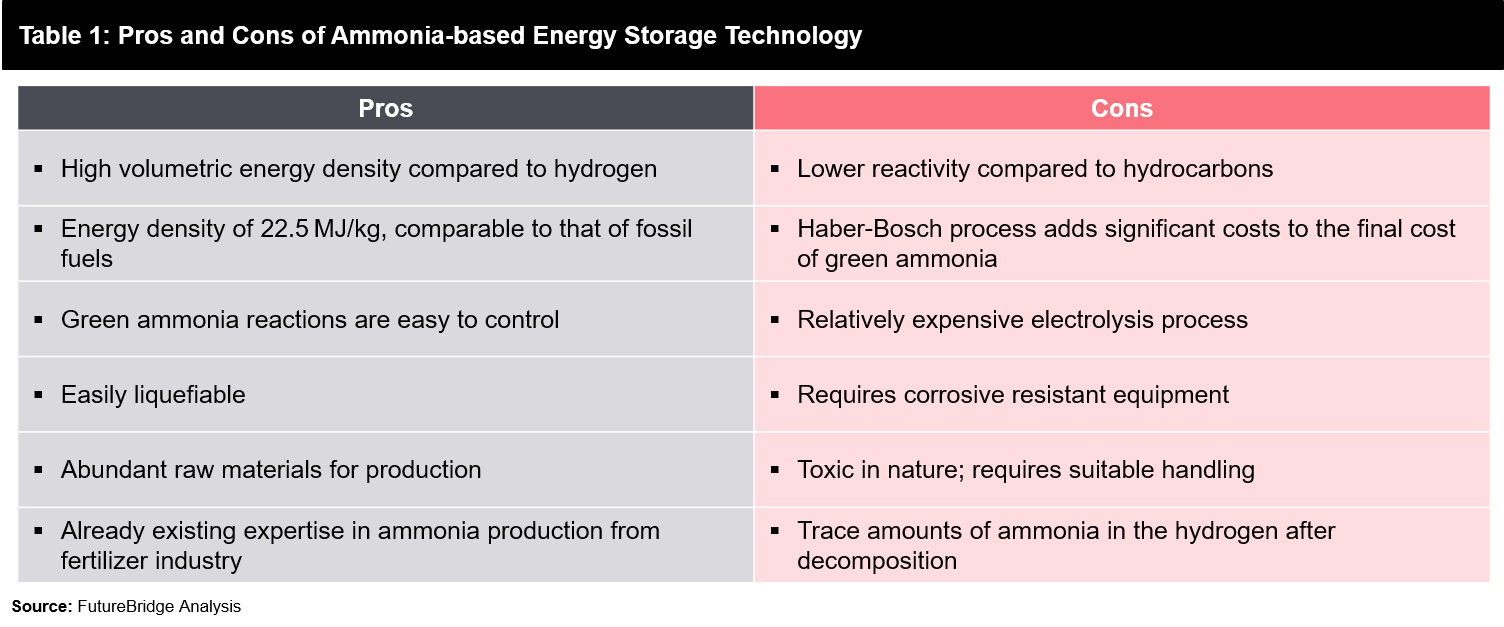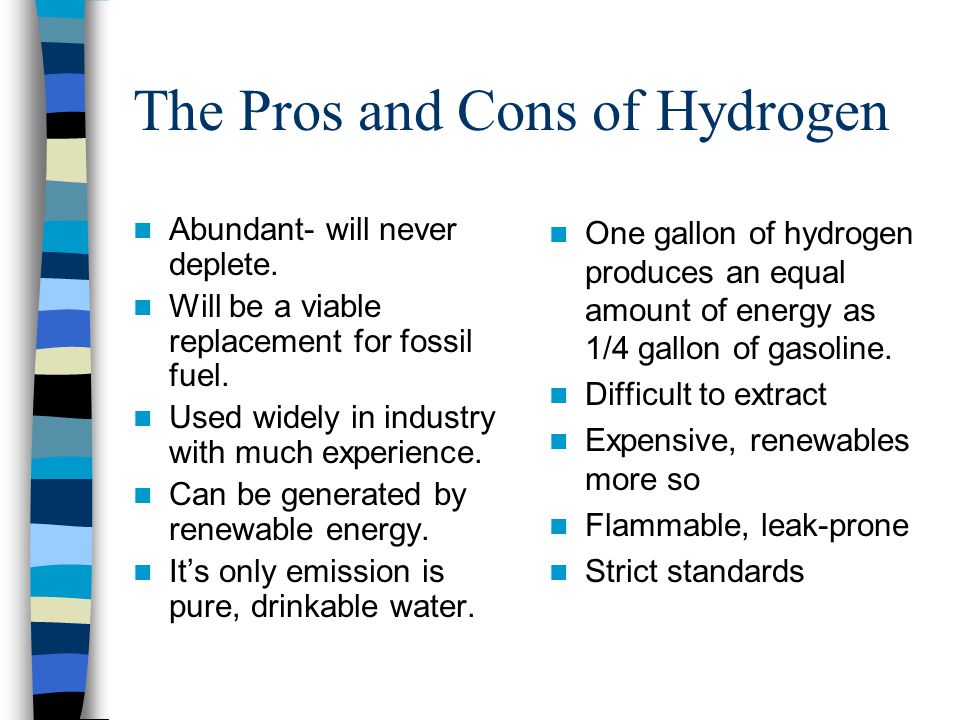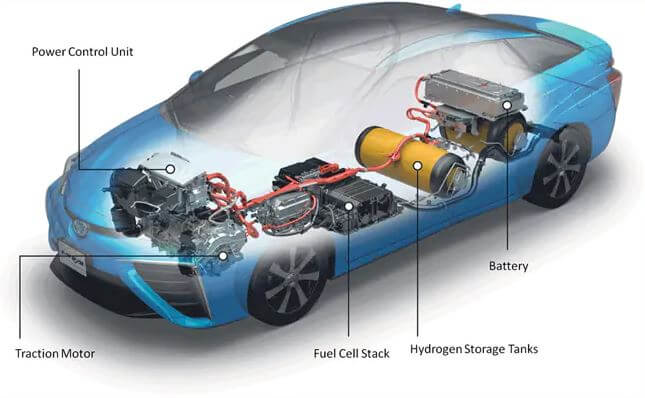Hydrogen can be liquidised to increase the energy density in the same way as LNG but to remain liquid hydrogen has to be stored at temperatures below -253C. In this article AMS Composite Cylinders Director Steve Langron examines hydrogen fuel cells looking at the how HFCEVs work and the pros and cons of the technology in the automotive industry.
 Green Ammonia For Energy Storage Futurebridge
Green Ammonia For Energy Storage Futurebridge
However hydrogen in its pure form is not found on earth and is only available as.

Hydrogen fuel pros and cons. 10 Disadvantages of Hydrogen Fuel Cells. One can purchase a hydrogen fuel cell right now to meet the energy needs of ones home or vehicle. Hydrogen Fuel Cells Pros and Cons Fuel cells are one of the cleanest sources of energy today that most people use for their vehicles.
The hydrogen fuel cell pros and cons show us that as soon as the scientists find out an affordable way to split off hydrogen from water well be able to save our planet. Hydrogen fuel cells are considered as the best option in the future energy mix. List of the Pros of Hydrogen Fuel Cells.
How Hydrogen Fuel Cell Electric Vehicles Work. The lower level of dependence on fossil fuels that could be accomplished through the expansion of hydrogen power could also lower the dependence on the world market prices for fossil fuels like oil. Hydrogen fuel waste is eco friendly and other similar eco friendly features can make it a more sustainable form of transport in some ways HVs are fuel efficient.
Summary Hydrogen Fuel Cell Car Pros Cons. Hydrogen fuel does not rely on an electric grid making it a consistent and reliable source of energy that is not subject to disruptions. Since oil is a fossil fuel that will eventually become depleted chances are that the world market price for oil will increase over the next decades.
Here are some of the pros and cons of using hydrogen fuel cells for transportation needs. List of the Pros of Hydrogen Energy. Itll definitely help to solve the problems related to greenhouse gases and the protection of the environment.
Provides energy flexibility. Pros Renewable And Abundant One of the best potentials looking into hydrogen being an alternative fuel source is that it will never run out. While hydrogen fuels are often used for rockets they also become more popular in the context of automobiles.
Get Results from 6 Engines at Once. When using energy from fossil fuel resources there are multiple dangers to consider. Ad Search The Fuel Doctor.
We go into each of these pros and cons in more detail in the guide below. Here are some of the more common pros and cons in using hydrogen as a new source of energy. Hydrogen fuel cell technology provides a high-density source of energy with good energy efficiency.
If used in vehicles a driver can achieve a 100 better fuel economy with hydrogen when compared to gasoline. Hydrogen fuel cells continue operating without a drop-off even when the reserves are low implying we can drive heat without needing to worry about the stability of the product. There are no harmful emissions that come from the vehicle.
Vehicles which utilize hydrogen fuel cells do not produce harmful emissions into the environment. Unfortunately this energy source also comes with some drawbacks. There is no doubt that hydrogen is the most abundant element in our universe.
It may take some time to acquire it but it is renewable so no one would have to worry about wasting it like other sources of fuel. Hydrogen fuel cell cars are vehicles that use hydrogen fuel instead of conventional fuels like gas. Here are the pros and cons of hydrogen energy to consider when evaluating it as a potential fuel for the future.
Cons of Hydrogen Fuel Cells. The cost of hydrogen fuel compared to gasoline is significant. Pros and Cons of Hydrogen Fuel Cell Cars.
There are fewer exposure risks with hydrogen energy. Ad Search The Fuel Doctor. Hydrogen energy is more effective as a fuel than some other fuels.
Hydrogen has the highest energy content of any common fuel by weight. While this makes hydrogen fuel cells seem to be the perfect source of energy the reality is a bit more complicated. Modern cars are powered in a handful of ways.
Such impressive improvement will also help to stop global warming. Actually this is an alternative fuel to. Compared to conventional cars that use fossil fuels fuel cell cars have many advantages.
Get Results from 6 Engines at Once.





